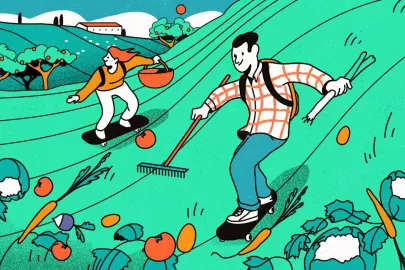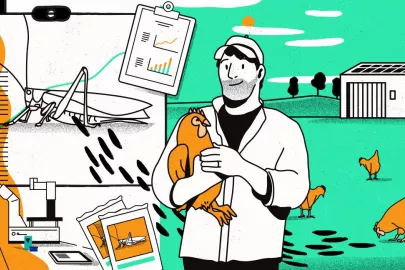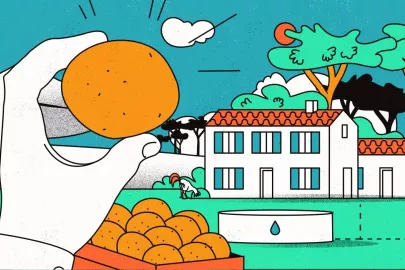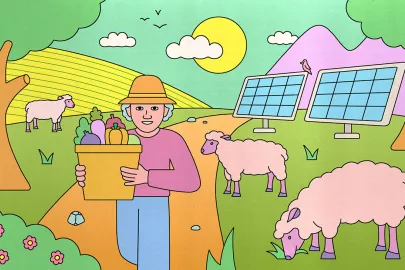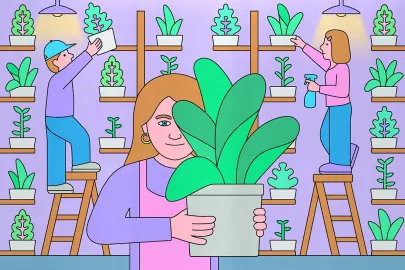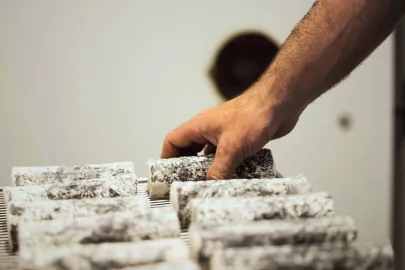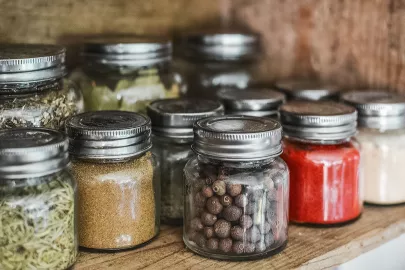Free from synthetic chemicals, organic farming has more and more people convinced, and the trend is continuing worldwide. Proof perhaps of a fast-approaching collective consciousness!
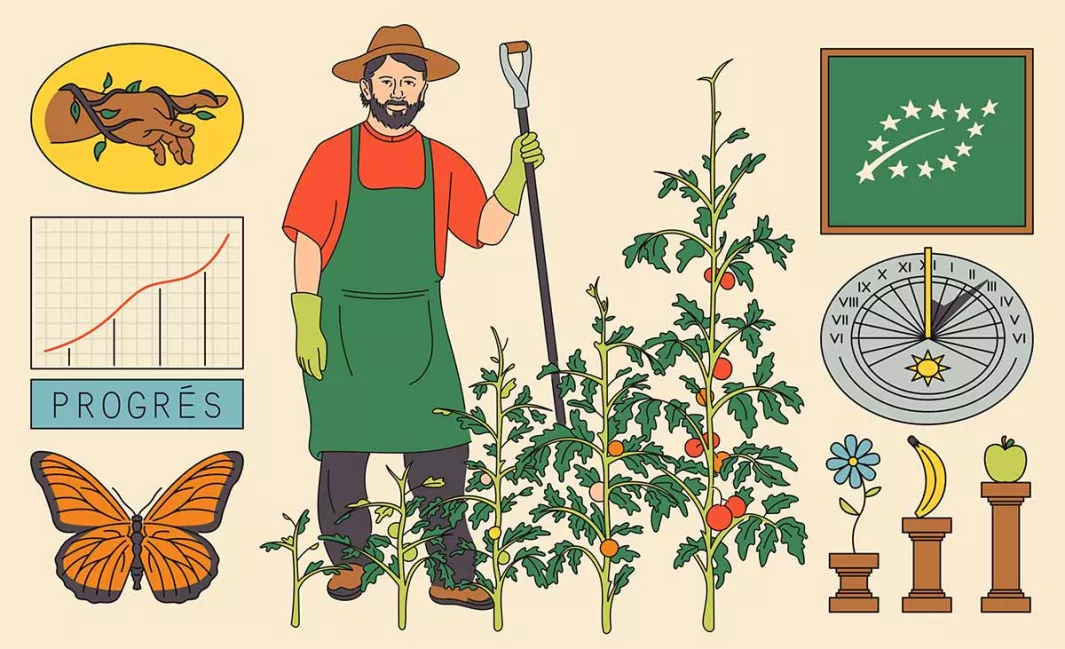
Nothing in the world could persuade thirty-something Ana-Gaëlle Le Damany to leave the Pink Granite Coast in Brittany, where she grew up. She and her partner Paul took over the farm there, a few kilometers from the town of Lannion, in 2016. "My father was a traditional dairy cattle farmer. We rent his land, which he kindly converted to organic before we took over. I have always been conscious of the environment and very fond of animals, so it was unthinkable for me to use chemicals in my work.”
Like Ana-Gaëlle, more and more market gardeners, livestock farmers, cereal farmers and even fruit farmers are choosing organic when they take over their farming business. 5,994 new farms converted to organic farming were notified to the authorities in 2020, bringing the total number of organic farms to 53,255.
The same trend is being observed among newcomers to farming, who opt for organic from the get-go. On my arrival in Réveillon, a small hamlet in the Perche region to the west of Île-de-France, where Une Ferme du Perche is located, I am greeted by Tom Rial. Aged just 26, he has already been running this organic micro-farm for two years. “It was never in any doubt”, the young man reiterates. This explosion of eco-farms is also reflected in terms of land area. According to Agence Bio, the French body which develops and promotes organic farming, 2.5 million hectares (5.8 million acres) were being farmed organically at the end of 2020, equating to 9.5% of France’s total cultivated area.
This figure has doubled in the space of five years. Arboriculture, viticulture, vegetables and field crops: no production is exempt from this dynamism, making France one of the leading European countries in terms of organically cultivated land and the 2nd largest European country in organic market (nearly 13 billion euros) !
And France is no exception. The growth of organic farming in Europe and even worldwide has accelerated in recent years, driven by consumer concerns about the environment, health, and animal welfare. Between 2000 and 2018, the global number of organic farms increased 11.2-fold and the land area cultivated organically 4.6-fold.
The strongest growth rates were seen in Asia and Africa. By cutting out synthetic chemicals, limiting the use of inputs and popularizing cultivation practices which are less polluting for people and the planet, organic farming is heralding the return of precious pollinators to the fields, the re-wilding of the landscape and above all, a gradual restoration of biodiversity in the countryside and in the city. So many notes of hope for a brighter future. Let’s hope that these numbers continue to grow and that this model becomes the norm!
Sources: MSA, Bio Agency
Contributor

Editor

